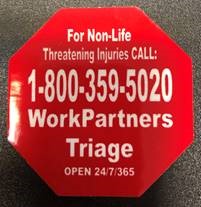It’s time we paid attention to some larger issues – issues that can and do affect health and safety in general. So, yes, I guess it’s a safety meeting after all. Let’s call it a life meeting. We never talk about suicide, addiction, or mental health. They’re just not typical focus areas for construction companies – or most workplaces. There is a stigma associated with these issues that can discourage discussions and create an inability to seek help, resulting in suffering in silence and shame. These challenges extend from the office to the jobsite, and then to the home. There is an emotional and financial toll that is impacting our industry in many ways – and we don’t talk about it. The reality is, each one of us probably knows someone who is affected – or someone in our family is. Or maybe it’s you – and you know and don’t tell, or you’re working on it, and you do. Or somewhere in between. There is no true “right way” to handle this. But one of the best places to start is to simply talk. Ask for help. Ask a friend if they need help. Think about it for a minute – a few quick facts, of the hundreds that can really make you think:
- The rate of suicide in construction is 4 times the national average – in 2015, over 4000 construction-related deaths by suicide – compared to 985 falls, caught-in-betweens, struck-byes, and electrocutions on jobsites
- Alcohol and Substance Misuse in the construction and industry are estimated to be nearly 2X the national average. Statistically speaking, 13% of your coworkers probably binge drank or used illicit drugs last month
- Drug overdoses took more than 60,000 lives in 2016 – overdoses are now the leading cause of death of people under 50 in the US
- 1 in 5 adults will have some kind of diagnosable mental illness this year. Addiction, anxiety, depression, schizophrenia, bipolar, ADHD – and the list goes on.
So, what does this mean? To safety, to quality, to you?
Distraction. Side effects of medication. Inability to report to work – because of having to manage these issues at home. Loss of income. Depression. Anxiety. Fear. Anger. Pressure. Fatigue. Increased drug or alcohol use. Car accidents. Workplace incidents. And the list goes on. Any one of these can hurt you – or someone you love, or a co-worker. But you probably know that already.
It’s okay to talk. It’s good to talk. It really is time to talk. Here’s my question for you today: Are you okay?
If the answer is No, Reach out for help. There are several outreach programs and organizations you can call for assistance. Don’t wait.
Dial 988 for the Suicide & Crisis Lifeline! Your life matters!

